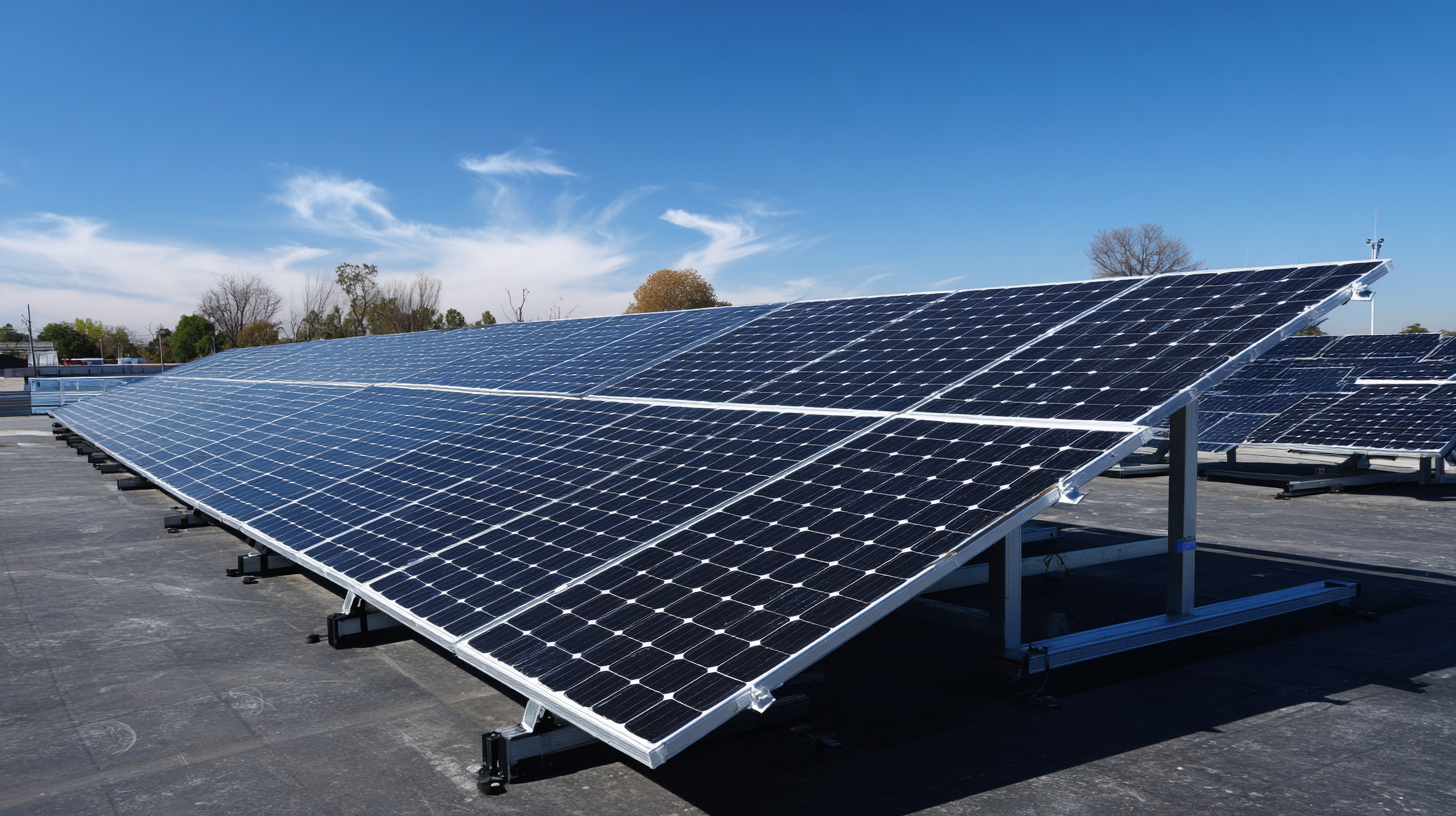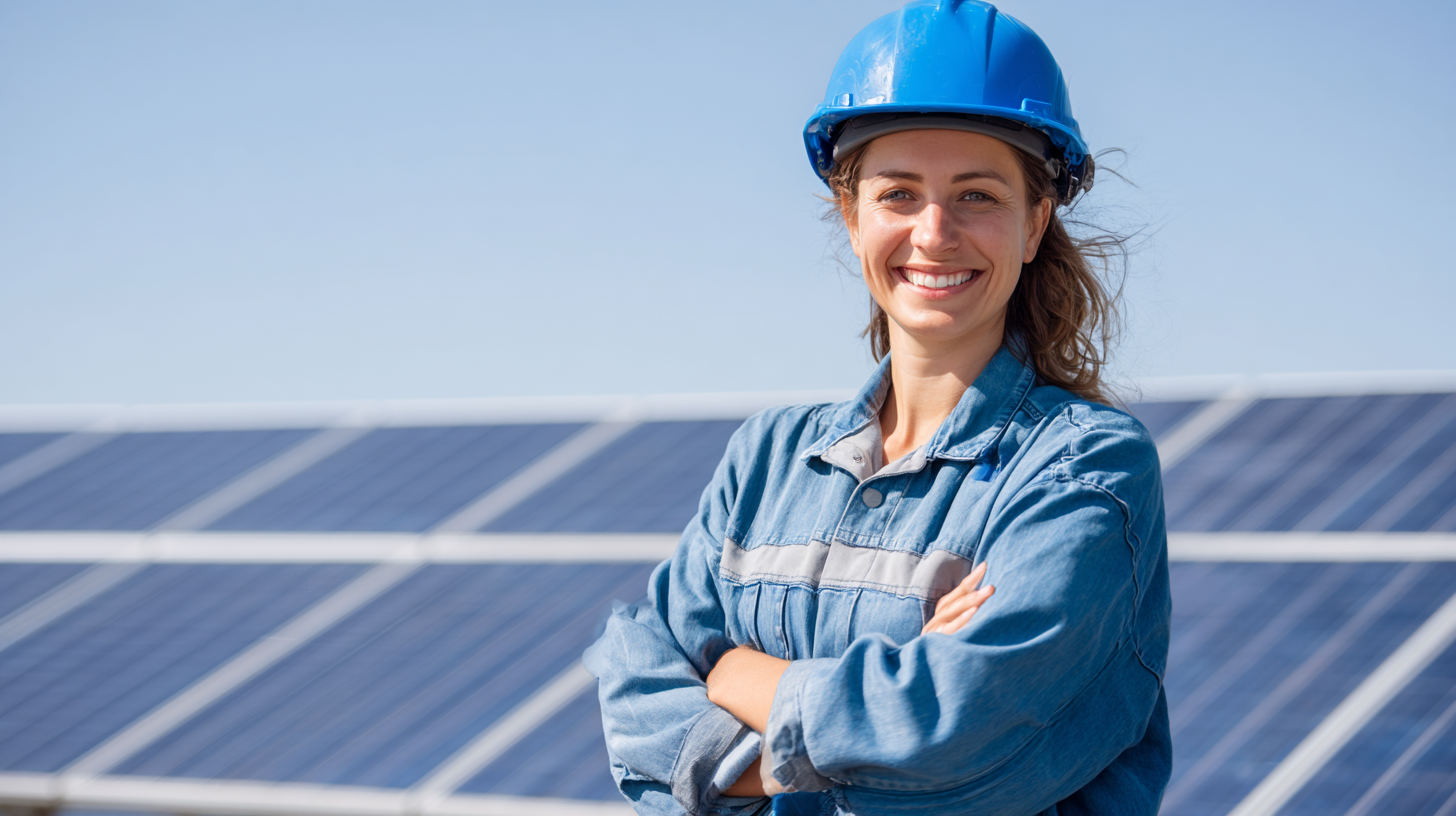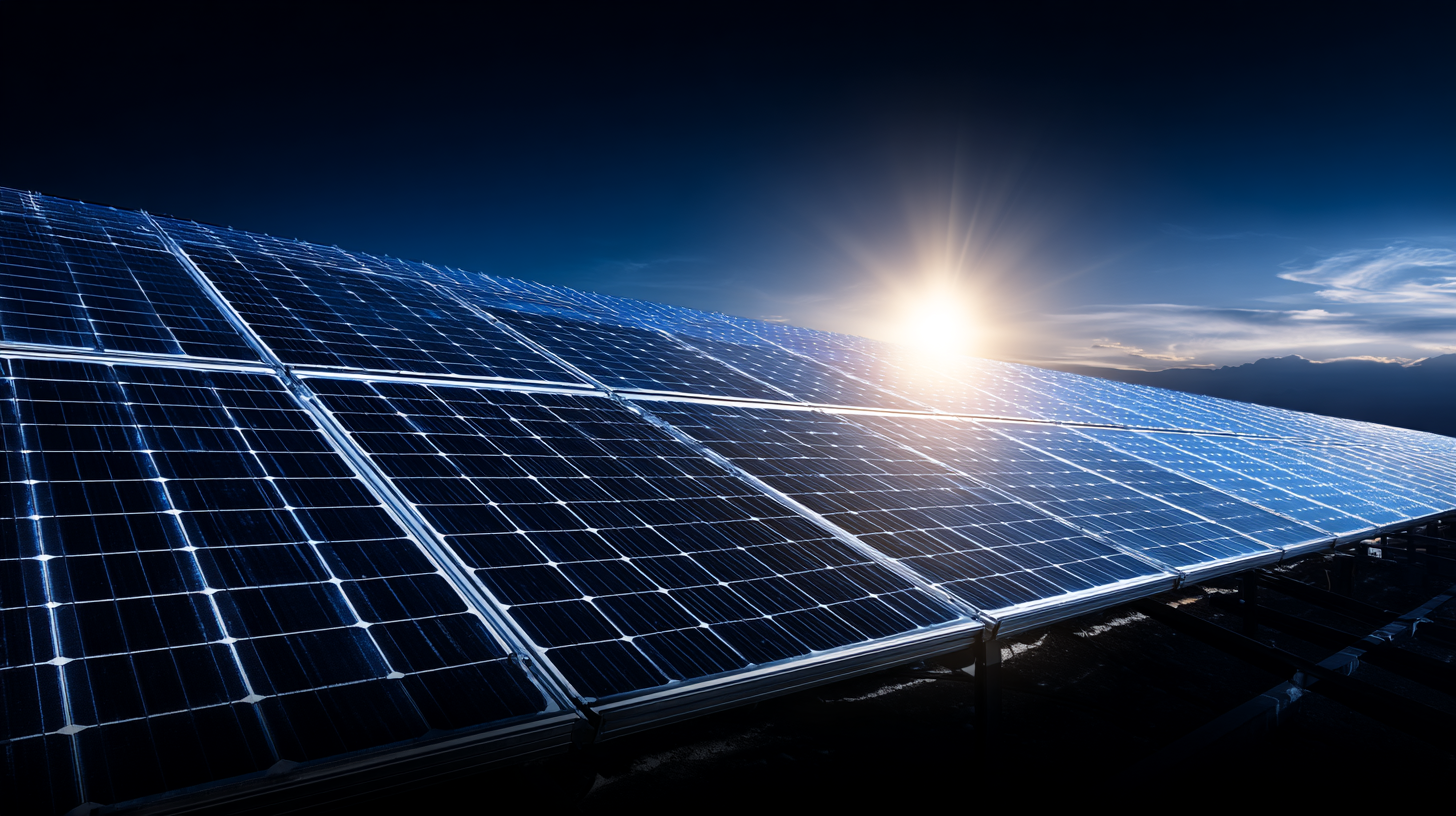Top Industry Standards and Key Reasons to Choose the Best Solar Energy Panels for Global Buyers
 In recent years, the global solar energy market has witnessed unprecedented growth, driven by a surge in demand for renewable energy solutions. According to the International Energy Agency (IEA), solar energy capacity rose by 24% in 2022 alone, marking the largest annual increase, with a collective capacity of 1,065 GW worldwide. This trend is encouraging consumers and industries alike to invest in high-quality solar energy panels that not only provide efficiency but also durability. As the world pivots towards sustainable energy sources, choosing the best solar energy panels becomes crucial for global buyers seeking reliable performance and long-term value. With advances in technology and manufacturing, particularly from China, which has established itself as a leader in solar panel production—evidenced by a market share exceeding 60%—customers can rest assured that they are investing in products that promise quality assurance and exceptional performance.
In recent years, the global solar energy market has witnessed unprecedented growth, driven by a surge in demand for renewable energy solutions. According to the International Energy Agency (IEA), solar energy capacity rose by 24% in 2022 alone, marking the largest annual increase, with a collective capacity of 1,065 GW worldwide. This trend is encouraging consumers and industries alike to invest in high-quality solar energy panels that not only provide efficiency but also durability. As the world pivots towards sustainable energy sources, choosing the best solar energy panels becomes crucial for global buyers seeking reliable performance and long-term value. With advances in technology and manufacturing, particularly from China, which has established itself as a leader in solar panel production—evidenced by a market share exceeding 60%—customers can rest assured that they are investing in products that promise quality assurance and exceptional performance.
Understanding Global Solar Energy Standards: A Comprehensive Overview
As the global demand for renewable energy continues to rise, understanding solar energy standards becomes essential for buyers navigating the marketplace. Various countries and organizations have established guidelines and certifications to ensure that solar panels meet safety, efficiency, and performance criteria. Familiarizing yourself with these standards can help you make informed decisions when purchasing solar panels.
Tips: When researching solar panels, always look for certifications such as IEC 61215 and IEC 61730. These international standards ensure that the panels have undergone rigorous testing for durability and safety. Additionally, inquire about the panel's efficiency rating, which indicates how much solar energy it can convert into usable electricity. Higher efficiency ratings often translate to better performance and longer-term savings.
Another crucial aspect to consider is the warranty provided by manufacturers. A robust warranty not only reflects the manufacturer’s confidence in their product but also offers peace of mind to buyers. Always favor manufacturers that provide substantial warranty terms, as this can save you from unexpected costs in the future. By prioritizing established industry standards and choosing reputable manufacturers, you can be confident in your solar energy investment.

The Importance of Efficiency Ratings in Solar Panels for Buyers
When selecting solar energy panels, efficiency ratings play a crucial role for global buyers. Efficiency is measured by the percentage of sunlight that a panel can convert into usable electricity. According to the National Renewable Energy Laboratory (NREL), the average efficiency of commercial solar panels has improved significantly, reaching over 20% for many models available today. Higher efficiency panels not only generate more energy but can also save space on rooftops and land, making them a preferred choice in urban and constrained environments.
Moreover, understanding the implications of efficiency ratings extends beyond just energy production. Solar panels with higher efficiency ratings often come with better warranties and longer lifespans. For instance, a report by Wood Mackenzie highlights that premium panels can last up to 25 years, while standard panels may have a shorter productive life. This longevity, combined with their energy performance, makes high-efficiency solar panels not just a smart investment for reducing electricity bills but also for contributing to long-term sustainability goals. With the global shift towards renewable energy sources, selecting panels with top efficiency ratings ensures that buyers are making informed decisions that align with industry standards.
Top Industry Standards and Key Reasons to Choose the Best Solar Energy Panels for Global Buyers
| Dimension | Value |
|---|---|
| Efficiency Rating (%) | 15 - 22 |
| Panel Lifespan (Years) | 25 - 30 |
| Warranty Period (Years) | 10 - 25 |
| Average Cost ($/Watt) | 0.50 - 1.00 |
| Temperature Coefficient (%/°C) | -0.3 to -0.5 |
| Carbon Footprint Reduction (kg CO2/Year) | 1,000 - 1,500 |
| Global Market Growth Rate (%) | 20 - 25 |
How to Evaluate Durability and Warranty When Choosing Solar Panels
 When selecting solar energy panels, evaluating durability and warranty is crucial for ensuring a wise investment. Solar panels are a long-term commitment; thus, it’s essential to understand the materials used in their construction. Look for panels that utilize high-quality materials, such as tempered glass and robust frames, as these contribute significantly to their longevity. Additionally, inquire about the testing methods manufacturers use to assess durability against environmental factors, including extreme weather conditions.
When selecting solar energy panels, evaluating durability and warranty is crucial for ensuring a wise investment. Solar panels are a long-term commitment; thus, it’s essential to understand the materials used in their construction. Look for panels that utilize high-quality materials, such as tempered glass and robust frames, as these contribute significantly to their longevity. Additionally, inquire about the testing methods manufacturers use to assess durability against environmental factors, including extreme weather conditions.
Tips: Always check the rating of the panels based on certifications, such as IEC or UL, which indicate that the panels have undergone rigorous testing. Compare the warranty periods – a warranty of 25 years is often a benchmark indicating the manufacturer's confidence in their product. Be cautious of overly short warranties, as they may suggest inferior quality or limited durability.
Moreover, don’t overlook the importance of performance warranties, which guarantee a certain level of efficiency over time. It's wise to choose panels with a performance warranty that ensures they will produce a specified percentage of their rated output even after significant years of usage. This ensures that you are protected against performance degradation and can enjoy the maximum benefits of your investment in solar energy.
Top Brands Leading the Way in Solar Technology for International Markets
The global solar energy market is witnessing rapid advancements, particularly in portable solar technologies. The market size for portable solar panels was estimated at USD 1,245 million in 2023, with an impressive CAGR of 17.48% projected from 2024 to 2031. This growth reflects the increasing demand for efficient energy solutions and the recognition of solar power as a vital component in the transition to sustainable energy.
Several brands are leading the way in innovative solar technologies tailored for international markets. Notably, advancements in solar panel efficiency and technology are being driven by significant investments in research and development. Companies are focusing on enhancing performance to enable customers to reduce their energy expenses while maximizing returns on excess energy sold back to the grid. The introduction of favorable solar export tariffs also plays a critical role in encouraging consumers to adopt solar energy solutions, making it a lucrative investment in many regions worldwide.
Navigating Price vs. Quality: Making Informed Choices in Solar Investments
When investing in solar energy panels, navigating the complex landscape of price versus quality is crucial for global buyers. With the solar market experiencing a staggering growth rate projected at over 20% annually through 2025, making an informed choice is more important than ever. Industry experts highlight that while initial costs can be high, investing in high-quality panels often leads to substantial long-term savings and superior energy efficiency. For example, premium solar panels can yield up to 22% more energy than lower-quality alternatives, as cited by the National Renewable Energy Laboratory (NREL).
**Tip:** Always check the efficiency rating and warranty details of solar panels. A higher efficiency rating means greater output, allowing you to recoup your investment sooner. Moreover, choosing panels with a longer warranty—typically 25 years—can offer peace of mind regarding longevity and performance.
Furthermore, it’s vital to consider the technical specifications and certifications. According to the California Energy Commission, panels that meet Tier 1 standards are generally recognized for their reliability and performance in various environments. Balancing these quality indicators against your budget will empower you to make a decision that not only suits your current needs but also supports a sustainable future.
**Tip:** Compare the energy production estimates against the lifespan of the panel warranties. This will give you a clearer picture of the return on investment and help you understand the potential energy savings over time.